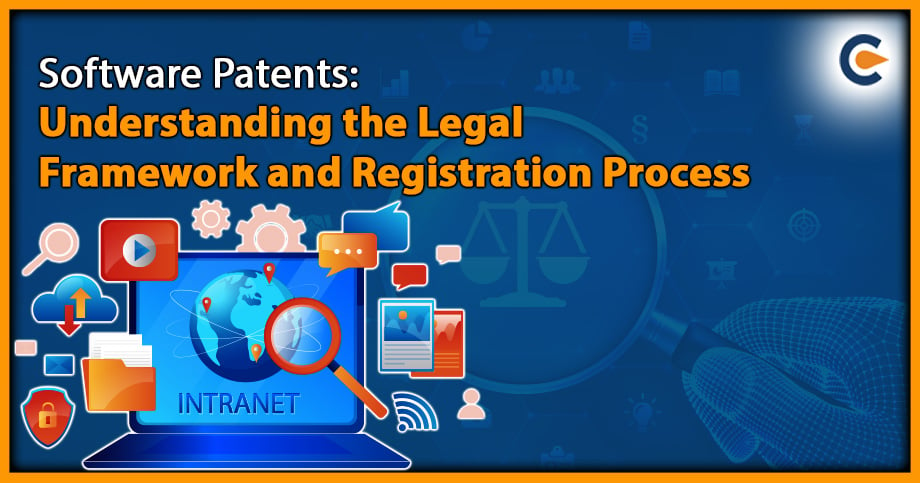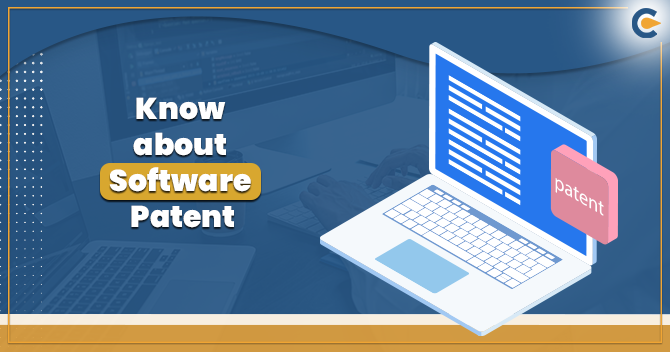Patent litigation financing is a relatively new concept that has emerged in recent years in the Indian legal system. Patent litigation financing refers to a process wherein a third-party entity provides funding to a patent owner who is seeking litigation against an alleged patent infringer. This third-party entity also takes a share in the proceeds of the litigation in the event that the patent owner is successful in the lawsuit. This concept is an important aspect of patent law as it enables patent holders, who are often small and medium-sized entities, to enforce their patent rights against infringers without the financial burden that comes with lengthy litigation.
Patent Litigation Financing: An Overview
Patent litigation financing is a process where a third-party entity provides financial assistance to the litigant in a lawsuit in exchange for a portion of the settlement or award. Patent litigation financing has been gaining popularity in recent years, especially in countries like the United States, where the cost of patent litigation is very high. In India, patent litigation financing is not as prevalent as in the United States, but its concept and legal implications are no less relevant.
Patent Litigation Financing (PLF), also known as patent monetization, is a practice where third-party investors provide capital to patent owners to help them pursue litigation against infringing parties. The practice has gained traction in recent years as patent owners look for ways to monetize their patents while pursuing legal action against infringing parties.
Patent litigation is costly and time-consuming, and many disadvantaged plaintiffs may not be able to afford the expenses associated with litigation. Patent litigation financing provides funding to patent litigants who cannot afford legal fees or related expenses. Although litigation funding is a relatively new concept in India, it is not prohibited, and it is mostly self-regulated.
The Indian legal system has no law or regulation specifically governing patent litigation financing. However, the legal implications of patent litigation financing must be examined to understand its operation within the Indian legal framework.
Patent litigation financing, also known as patent litigation funding, has emerged as a relatively new and innovative mechanism for funding the expensive and time-consuming process of patent litigation. Patent litigation financing involves third-party funding of patent litigation in exchange for a share of the proceeds in the event of a successful outcome. The financing can cover a range of expenses, including legal fees, expert witness fees, and other litigation-related expenses. In recent years, patent litigation financing has become increasingly popular in India, where the legal system is known for its delays and the high cost of litigation.
One of the significant advantages of patent litigation financing is that it provides access to justice for patent holders who may not have the financial resources to pursue a patent infringement suit. In India, patent litigation can be a costly and time-consuming process, and most patent holders may not have the resources to sustain a prolonged legal battle.
Patent litigation financing provides an alternative means of financing for patent holders, making it possible for them to pursue infringement suits without having to spend large sums of money upfront. This is particularly useful for small and medium-sized enterprises (SMEs) that may not have access to significant funding and may be at a disadvantage when it comes to enforcing their patents.
However, patent litigation financing is not without its drawbacks. Critics argue that it may lead to frivolous lawsuits and may encourage patent trolls or non-practicing entities (NPEs) to file lawsuits with the sole purpose of obtaining a settlement or royalty payment. Patent trolls are entities that do not produce any products or services but hold patents for the sole purpose of licensing or enforcing them.
Furthermore, patent litigation financing agreements may be subject to certain legal and ethical considerations. For example, litigation funding agreements may be challenged on the grounds of champerty or maintenance, which are legal doctrines that prohibit third-party funding of litigation. Champerty refers to an agreement in which a third-party funds a lawsuit in exchange for a share of the proceeds, while maintenance refers to a person who supports a lawsuit in which he or she has no interest.
The Indian judiciary has also played a vital role in regulating patent litigation financing. In a landmark decision in 2017, the Delhi High Court explicitly recognised the legality of third-party funding in civil litigation. The court held that third-party funding is not repugnant to public policy and that there is no legal bar on such funding. The Delhi High Court clarified that the legal system’s right to access and administer justice would be compromised if the court prohibited third-party funding.
However, the Delhi High Court also noted that while financing arrangements are legal, frivolous litigation should not be encouraged, and such funding should not compromise the litigant’s independence. The court emphasised that the funder cannot have any control over the litigation’s functioning and should not have any direct or indirect influence on the proceedings.
| Category | Information |
|---|---|
| Definition | A third-party provider that funds the legal expenses of plaintiffs or defendants in patent cases |
| Purpose | To level the playing field for small inventors or companies against larger corporations |
| Benefits | – Access to sufficient funding to pursue patent litigation – Minimize financial risks and uncertainties of patent litigation – Ability to monetize their patents |
| Drawbacks | – Costly legal fees – Potential conflict of interest – Limited regulation in the industry |
| Key players | – Burford Capital – IMF Bentham – Gerchen Keller Capital |
| Industry Trends | – The patent litigation financing industry is growing – Litigation funding is becoming a mainstream option for financing patent litigation – More companies are entering the market, offering a variety of financing options |
Acts and Provisions Included:
In India, patent litigation financing is largely unregulated, and there are no specific provisions in the Indian Patent Act or the Civil Procedure Code that deal with the issue. However, the courts have recognised the validity of patent litigation financing agreements and have allowed such agreements to be enforced.
The Indian Patent Act of 1970[1] and the Civil Procedure Code of 1908 both govern the laws and regulations relating to patent litigation financing in India. The Indian Patent Act of 1970 provides for the enforcement of patents and prescribes the rights and liabilities of patentees. The Act also provides for the remedies available to patentees in cases of infringement of their patents, including the right to file a suit for infringement.
Section 34 of the Indian Contract Act of 1872 governs agreements between parties to finance litigation. This section declares null and void any agreements made by parties to fund litigation in exchange for a share of the settlement. However, this is subject to certain exceptions. If the financier is a charitable organisation providing funding for litigants without any expectation of repayment, this is not considered a void agreement. Alternatively, if the financial agreement does not interfere with the judiciary’s integrity and independence, it may not be deemed void.
The Civil Procedure Code of 1908 is also relevant to patent litigation financing as it governs the procedure for the enforcement of civil rights, including the procedure for filing a suit for patent infringement. The Code also provides for the process of discovery of documents, examination of witnesses, and other aspects of civil litigation.
In addition to the Contract Act, the Code of Civil Procedure (CPC) also governs issues of law relating to patent litigation funding. Under the CPC, third-party funding is permitted if disclosed, and it does not interfere with the judiciary’s independence. Parties that provide financing must be transparent about their identity and relationship with the litigant. Any arrangements between the third party, the litigant, and the advocate must be disclosed to the court. Third-party funding is usually done through an agreement between the financier and the litigant. This agreement must state that the funder has no direct or indirect control over the litigation and has no entitlement to any part of the judgement, settlement, or award.
Landmark Case Laws
- Monsanto Case
One of the most significant cases involving the use of patent litigation financing in India is the Monsanto case. Monsanto, a US-based biotechnology company, had filed a patent infringement lawsuit against Nuziveedu Seeds Ltd., an Indian seed manufacturer, for unauthorized use of its genetically modified Bollgard cotton seed technology. In order to fund the litigation, Monsanto had entered into an agreement with a third-party financier, which subsequently acquired a stake in the company’s Indian subsidiary.
The Monsanto case raised several legal issues with respect to patent litigation financing in India. For instance, the Indian Patents Act does not explicitly recognize the legality of such funding arrangements. The Act also prohibits the assignment of patents without the prior permission of the patent office, creating a challenge for third-party funders who seek financial gain from the proceedings.
In the Monsanto case, the Delhi High Court upheld the validity of the patent litigation financing agreement between Monsanto and its third-party financier. The court held that the agreement did not violate any provisions of the Indian Patents Act and that permission from the patent office was not required for such arrangements. The court ruled that there was no conflict of interest since the third-party funder was not directly involved in the lawsuit and that their interest in the outcome was aligned with that of the patent owner.
- Greenlight Planet Case
Another important case that highlights the use of patent litigation financing in India is the Greenlight Planet case. Greenlight Planet had filed a patent infringement lawsuit against several Indian manufacturers of solar lanterns for allegedly copying its design. The company had entered into an agreement with Burford Capital, a third-party litigation funder, to provide the necessary financing for the lawsuit.
The Delhi High Court refused to allow the funding agreement between Greenlight Planet and Burford Capital and ordered that the financiers be removed from the proceedings. The Court stated that the agreement between Greenlight and Burford created a conflict of interest, as the funder would greatly benefit if the patent owner was successful, thereby undermining their neutrality in the proceedings.
- Multi-Screen Media Private Limited v. Diamond Cable Network Pvt Ltd
In the case of Multi Screen Media Private Limited v. Diamond Cable Network Pvt. Ltd., the Bombay High Court observed that the funding of patent litigation in India is not illegal or contrary to Indian law. The court held that there is no prohibition on third-party funding in Indian law and that it does not infringe on any provision of the Indian Contract Act of 1872 or any other law. The court acknowledged that patent litigation financing can help inventors, particularly those with limited financial resources, defend their patents effectively. In doing so, it can also promote innovation and protect the wider public interest.
- Telefonaktiebolaget LM Ericsson (PUBL) V. Mercury Electronics & Anr
In the case of Telefonaktiebolaget LM Ericsson (PUBL) v. Mercury Electronics & Anr., the court held that as long as the financing does not contravene any laws, it is permissible under Indian law. In that case, an American company provided financial assistance to the plaintiff to fight the patent infringement case against the defendants. The court noted that the financing did not violate any regulatory provisions in India or any other country. Thus, the Delhi High Court has also recognised the legality of patent litigation financing in India.
- F Hoffmann-La Roche Ltd v. Cipla Ltd
In the case of Hoffmann-La Roche Ltd. v. Cipla Ltd., the Delhi High Court forbade the third-party funder from having any control over the litigation proceedings. The court held that the patent holder must maintain control over the litigation to ensure that the case is being fought in good faith and in the best interests of the patent holder. In addition to the above, the Indian judiciary has also taken steps to ensure that patent litigation financing does not lead to any unethical practises in the litigation process.
Conclusion
In conclusion, patent litigation financing has become an essential mechanism for funding the expensive and time-consuming process of patent litigation in India. While the legal framework for patent litigation financing is currently underdeveloped, the courts have recognised the validity of such agreements and allowed them to be enforced. The availability of patent litigation financing provides access to justice for patent holders who may not have the financial resources to pursue infringement suits. However, the use of patent litigation financing should be subject to careful consideration of legal and ethical issues. As the use of patent litigation financing becomes more prevalent in India, it is important to develop a framework for regulating such agreements to prevent abuse and ensure that they are used for their intended purpose. Thus, patent litigation financing is a feasible option for Indian patentees who wish to enforce their patents but are unable to afford litigation fees. Although there is no specific law governing patent litigation financing in India, the Contract Act and the CPC allow third-party financing subject to some distinct exceptions. Indian courts have also weighed in on the issue, and the Delhi High Court has explicitly recognised the legality of third-party funding in civil litigation. However, we must also ensure that the financial agreements do not compromise the judiciary’s independence or the litigant’s right to access justice.
Read Our Article: Analysis: Is India Ready For Third Party Litigation Funding?











